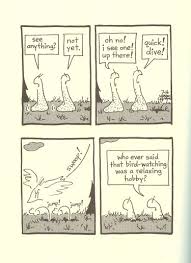
记忆方法
将“doggerel”分解为两部分:“dog”和“-erel”。将“dog”想象成一只可爱的狗狗,而“-erel”则可以想象成“regular”中“re”和“-er”的结合,意味着狗狗的叫声(“woof”)像是有规律的、重复的,这种有节奏的重复就像是打油诗或粗俗诗的感觉。这样可以帮助你记住“doggerel”是打油诗或粗俗诗的意思。
以上内容由AI生成, 仅供参考和借鉴
中文词源
doggerel 打油诗
来自dog的贬义用法,即小狗。
英语词源
- doggerel
- late 14c. (adj.); 1630s (n.), "Any rhyming verse in which the meter is forced into metronomic regularity by the stressing of normally unstressed syllables and in which rhyme is forced or banal" [Miller Williams, "Patterns of Poetry"]. probably from dog (n.) + pejorative suffix -rel and applied to bad poetry perhaps with a suggestion of puppyish clumsiness, or being fit only for dogs. Attested as a surname from mid-13c., but the sense is not evident.
权威例句
- 1. He styled his poem doggerel.
- 他把他的这首诗歌叫做打油诗.
- 2. Neither it nor his other theological versetreatises rise far above doggerel.
- 跟他的其他有关神学的议论诗一样,这不比拙劣的打油诗高明多少.
- 3. He had heard some silly doggerel that kept running through his mind.
- 他曾经听到过的几首无聊的打油诗不时在脑中浮现.
- 4. To have the catchy sound of a simple , repetitious rhyme or doggerel.
- 他曾经听过的一些一直在他脑海里浮现的无聊的打油诗.
- 5. A simple doggerel tells us vividly the meaning of the property right.
- 一个通俗的典故,能让我们形象地理解财产权的意义.